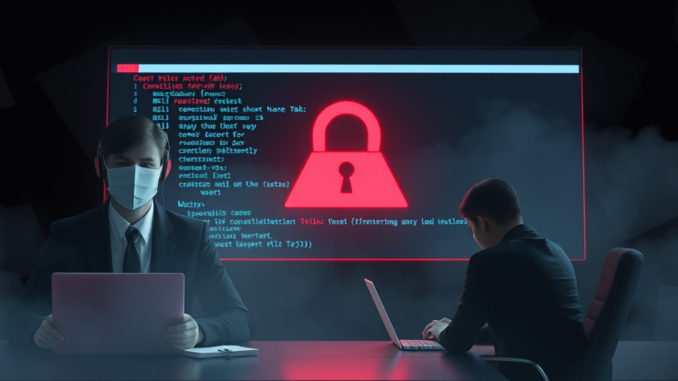
Summary
This article explores the devastating impact of ransomware attacks on businesses, highlighting the financial and reputational damage they inflict. It delves into the role lawyers can play in combating ransomware, emphasizing the importance of proactive measures, incident response plans, and avoiding ransom payments. The article also provides insights into how law firms can protect themselves from these attacks and contribute to a safer digital environment.
Explore the data solution with built-in protection against ransomware TrueNAS.
Main Story
Okay, so let’s talk ransomware. It’s not just a tech issue anymore; it’s a real business killer. Honestly, it’s everywhere. The frequency and sophistication of these attacks? It’s honestly just escalating. They’re not just going after the big guys, either. It’s hitting businesses of all sizes, and the consequences can be just devastating. I mean, we’re talking about financial hits, operational nightmares, and damage to your reputation that can be impossible to repair.
First, the financial side of things is just brutal. It’s more than just the ransom itself, and frankly, that’s often the least of it. You’ve got system recovery, data restoration—you know how that goes—legal fees, compliance headaches, and don’t even get me started on lost productivity. I saw a report just last week, they said some of these attacks are costing companies hundreds of thousands, and in some cases, even over a million dollars. For small and medium businesses it’s especially tough; they often don’t have the funds to recover; In fact, it’s crazy, but around 60% of them go under within six months of an attack. Can you believe it?
Then, there’s the reputational damage. That’s often a slow burn, and way harder to recover from than the money. Imagine the bad press, the eroded customer trust, the investor panic—it all snowballs. I remember seeing one case last year, where a company’s valuation plummeted because they got hit, you know, it’s like having a big red ‘victim’ sign plastered on their forehead. That stigma sticks, and it can seriously impact your ability to bring in new business.
And let’s not forget the operational chaos. These attacks can literally shut down your systems for extended periods. Productivity grinds to a halt, supply chains get tangled, and customer service goes completely haywire. It’s like they’re intentionally trying to cripple you, and not having access to your own files? That’s just hours and hours of wasted time, which, as a result, only compounds both the financial and reputational wounds.
So, what can you do about this mess? Well, for starters, businesses have to be proactive. It’s time to toughen up your defenses. Things like two-factor authentication, email security, and up-to-date antivirus software? These are no longer optional—they are essential. You also need a rock-solid disaster recovery plan. One that, includes regular backups and processes, that helps restore operations as quickly as humanly possible.
Lawyers, actually, they have a big role to play here too. Data watchdogs are now pushing lawyers to advise their clients not to give into ransomware demands. It’s a vicious cycle; paying ransoms only encourages these criminals. Lawyers, if you’re reading this, need to understand ransomware inside and out. You should advise on prevention, incident response and also, all the legal obligations surrounding a data breach. And—and this is key—law firms themselves, need to prioritize their own security. After all, we’re holding very sensitive data here; we can’t afford to let our clients get hurt.
Lawyers also guide clients through the legal minefield after an attack. From navigating data breach laws to negotiating with cyber insurers. So, it’s a proactive approach, and, working with cybersecurity experts, that lawyers can really help companies out. Together, you can lessen the impact of these attacks, and contribute to a safer, more secure digital world, which, frankly, we all deserve.
Just to be clear, as of today, January 25, 2025, this info is accurate. But, and this is really important, things in cyber space change, all. the. time. So, constant vigilance and constant adaptation, thats the only way to keep up.


So, lawyers are now tech experts too? I mean, advising on incident response and *cyber insurance*? Are we expecting them to start writing code next, or just debugging the network during their lunch break?
That’s a great point! While lawyers aren’t expected to code, their understanding of tech implications in legal matters, especially incident response and cyber insurance, is growing. It’s more about bridging legal and tech expertise to provide holistic advice and support.
Editor: StorageTech.News
Thank you to our Sponsor Esdebe – https://esdebe.com
Ah, yes, the “reputational damage,” because nothing screams ‘competent business’ like a big red “victim” sign. I’m guessing there’s a lawyer somewhere advising on optimal sign placement?
That’s a funny take on the reputational aspect! It’s true, the stigma can be significant and long lasting. It really highlights the importance of proactive measures, and not just in terms of tech but also public perception and trust after a breach.
Editor: StorageTech.News
Thank you to our Sponsor Esdebe – https://esdebe.com